
Pin on Medieval War Art
The Battle of Las Navas de Tolosa, known in Arab history as the Battle of Al-Uqab, took place on 16 July 1212 and was an important turning point in the Reconquista and in the medieval history of Spain. The Christian forces of King Alfonso VIII of Castile were joined by the armies of his rivals, Sancho VII of Navarre, Peter II of Aragon and Afonso II of Portugal, in battle against the Almohad.

AlUqab And AlSaqr Ep.1 مسلسل العقاب والصقر الحلقة الأولى YouTube
The Battle of Las Navas de Tolosa, known in Arab history as the Battle of Al-Uqab (معركة العقاب), took place on 16 July 1212 (15 Safar 609 AH) and was an important turning point in the Reconquista and in the medieval history of Spain.. The Christian forces of King Alfonso VIII of Castile were joined by the armies of his rivals, Sancho VII of Navarre, Peter II of Aragon and Afonso II.

Battle of SanitaalUqab 634 AD Khalid ibn alWalid ArabByzantine wars YouTube
Zarrar bin Al-Azur Rescued. After defeating the Roman army in this battle, Hazrat Khalid bin Waleed sent a squad of one hundred horsemen to Hazrat Rafi bin Umeera among the soldiers taking Hazrat Zarrar bin Al-Azur prisoner. Hazrat Rafi bin Umeera caught these soldiers before they reached Emisiya killed them and freed Hazrat Zarrar bin Al-Azur.
The main flag of the Almohads in the battle of Al Uqab, 13th century, today in exhibit in the
The Muslim conquest of the Levant (Arabic: فَتْحُ الشَّام, romanized: Fath eş-Şâm; lit."Conquest of Syria"), or Arab conquest of Syria, was a 634-638 CE invasion of Byzantine Syria by the Rashidun Caliphate.A part of the wider Arab-Byzantine Wars, the Levant was brought under Arab Muslim rule and developed into the provincial region of Bilad al-Sham.
The main flag of the Almohads in the battle of Al Uqab, 13th century, today in exhibit in the
The Battle of Sanita-al-Uqab was fought in 634 between the Rashidun Caliphate led by Khalid ibn al-Walid against Byzantine empire. the Caliphate forces intending to isolate the city from the rest of the region. Khalid placed detachments in the south on the road to Palestine and in the north on the Damascus-Emesa route, and several other smaller detachments on routes towards Damascus. Heraclius.

AlUqab Wa AlSaqr Arab Telemedia Group
A battle that took place in 1212 AD in southern Spain near Fort Al-Uqab between the Almohad state and the Spanish armies. It led to the defeat of the Muslims and heavy losses in lives and money, and among its results was the beginning of the loss of Andalusia.
The main flag of the Almohads in the battle of Al Uqab, 13th century, today in exhibit in the
The Black Standard. The Black Banner or Black Standard (Arabic: الراية السوداء, romanized: ar-rāyat as-sawdāʾ, also known as راية العقاب (rāyat al-ʿuqāb, "banner of the eagle" or simply as الراية , ar-rāyah, "the banner") is one of the flags flown by the Islamic prophet Muhammad according to Muslim tradition. It was historically used by Abu Muslim in.

Sin City The Al Uqab
Fort Al-Uqab is one of the forts built by the Umayyads in Andalusia (Flickr) A decisive battle in Islamic history, which took place in July 1212 AD near the "Tolosa" Valley and "Fortress of the Oqab" in southern Spain, between the Muslim army consisting of the Almohads and the Muslim masses led by the Almohad Caliph Muhammad al-Nasir, and the Spanish army consisting of the Crusaders.
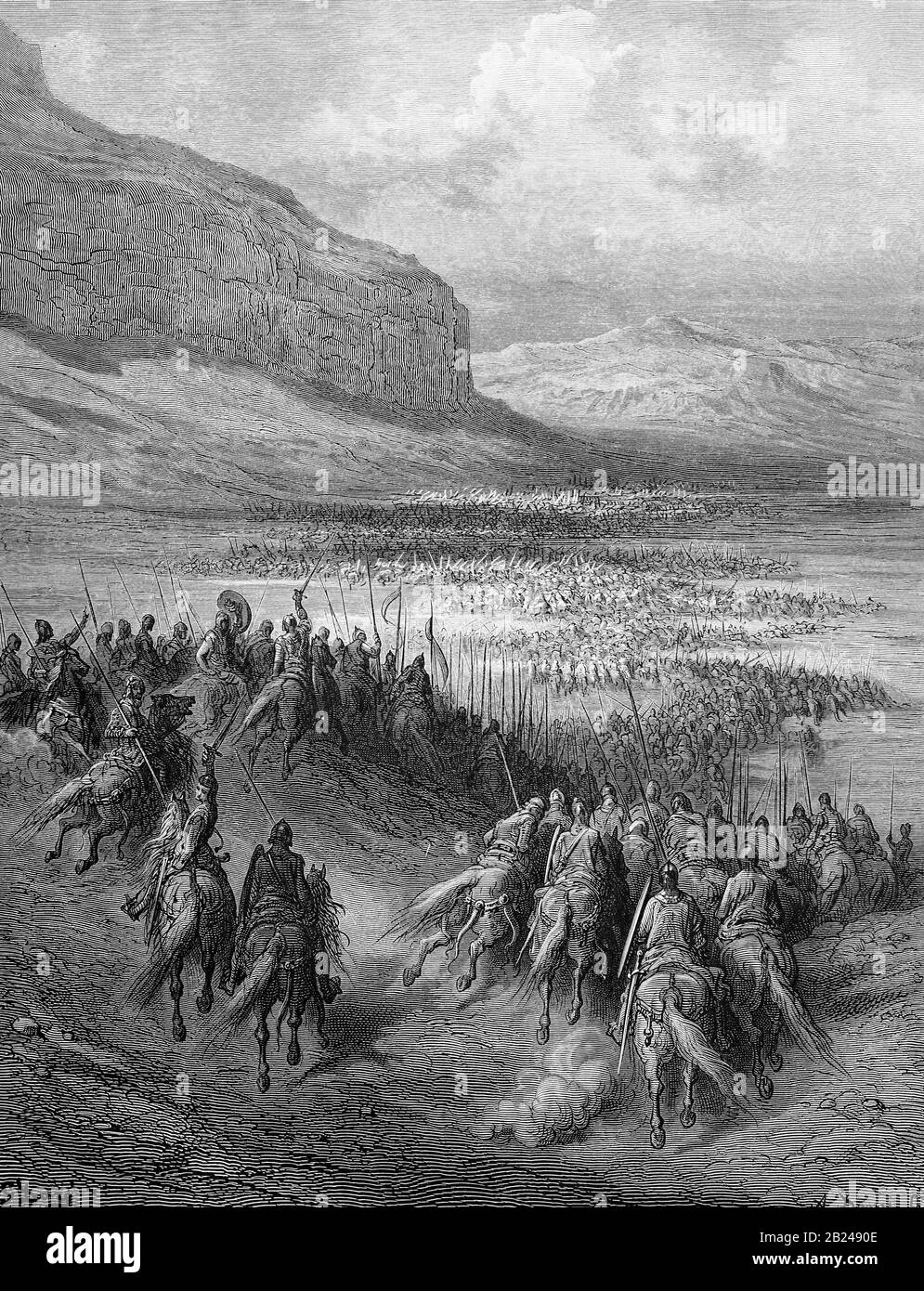
La Batalla de las Navas de Tolosa, conocida en la historia árabe como la Batalla de alUqab
The Battle of Sanita-al-Uqab (Arabic: معركة ثنية العقاب) was fought in 634 between forces of the Rashidun Caliphate led by Khalid ibn al-Walid against a Byzantine force sent by Byzantine Emperor Heraclius to relieve the besieged garrison of Damascus. Leading up to the battle, the Caliphate forces had intended to isolate the.

AlUqab Yang Perkasa YouTube
The Battle of Las Navas de Tolosa, known in Islamic history as the Battle of Al-Uqab (Arabic: معركة العقاب), took place on 16 July 1212 and was an important turning point in the Reconquista and the medieval history of Spain. The Christian forces of King Alfonso VIII of Castile were joined by the armies of his rivals, Sancho VII of Navarre and Peter II of Aragon, in battle against.
AGIKgqOhBkeEZrHeEL5D5lUJfaMXOe7YcgfYGzyHiAavAQ=s900ckc0x00ffffffnorj
Furthermore, its global aspirations include "[raising] the banner of al-Uqab above Jerusalem and the White House," which equates to the defeat of both Israel and the United States.[18] IS-K's ideology seeks to rid its territory of foreign "crusaders" who "proselytize Muslims" as well as "apostates," which include anyone from.
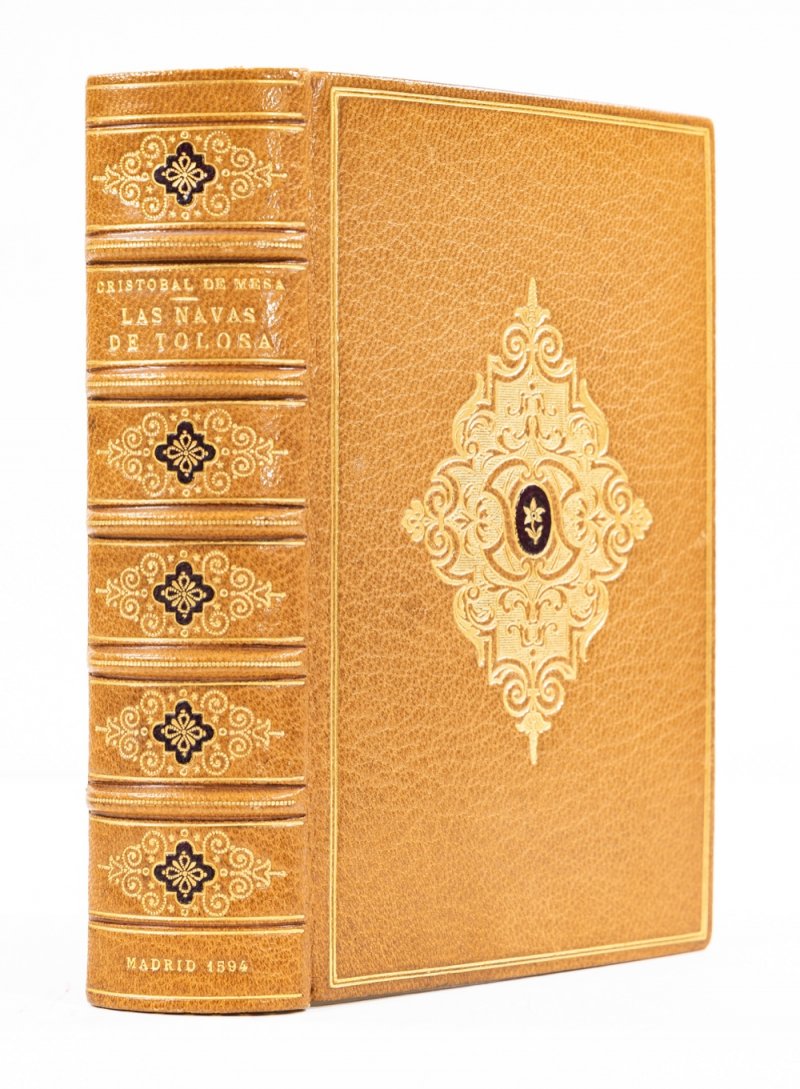
Las Navas de Tolosa Poema Heroico [The Battle of AlUqab, by a friend of Tasso and Cervantes]
Al-'Uqab (Arabic: العقاب): a black banner or flag. According to hadith of Abu Dawud's "Sunan" from one of the Companions who said: "I saw the Prophet's banner, it was yellow.". The 9th-century Emir Ahmad Ibn Tulun mentioned in his book "Mufākahat al-Khullān fī Hawādith Az-Zamān", in the incidents of the year 19 AH (640 CE.
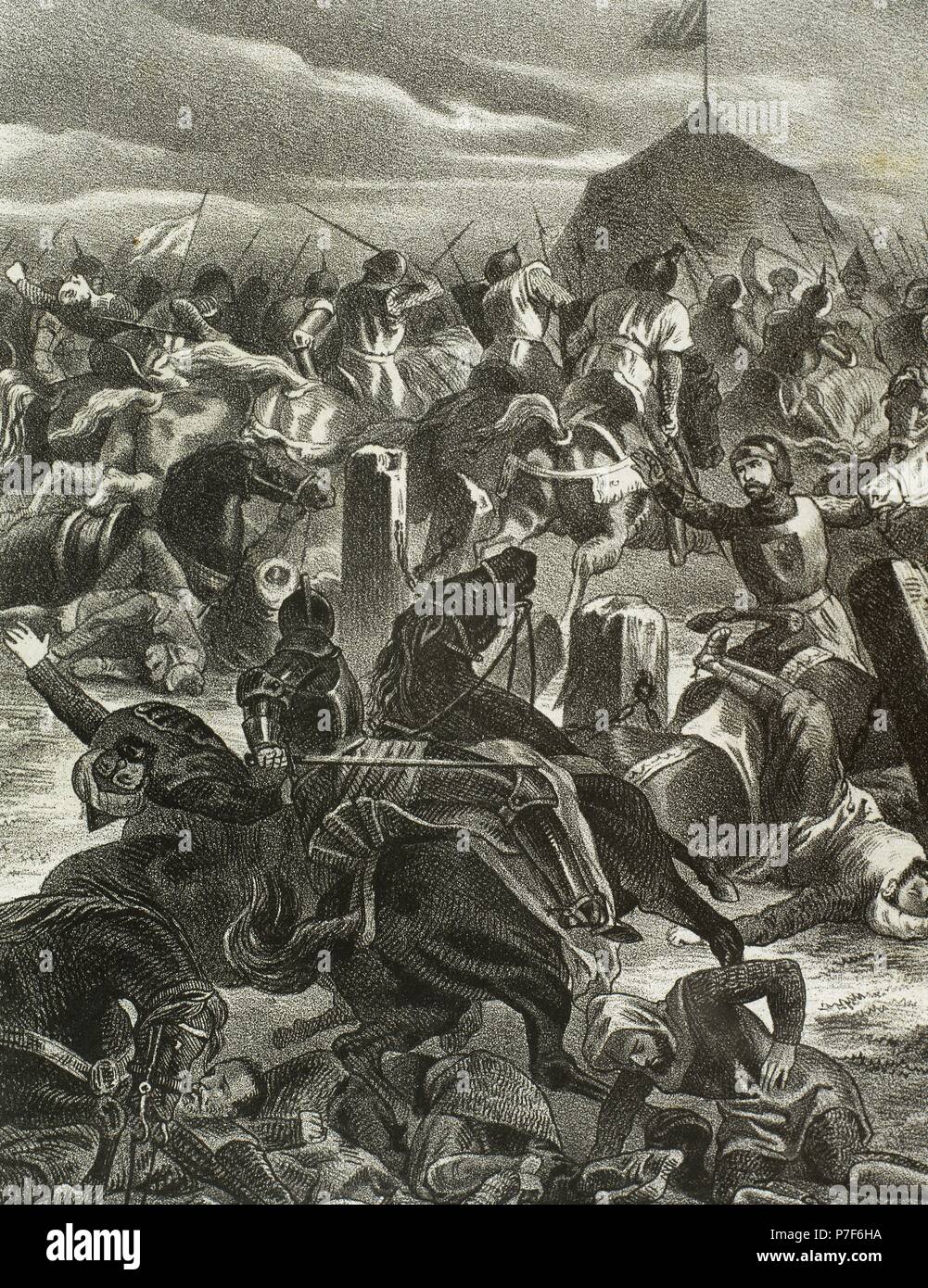
Batalla De Al Uqab Fotos e Imágenes de stock Alamy
The Battle of Sanita-al-Uqab (Arabic: معركة ثنية العقاب) was fought in 634 between forces of the Rashidun Caliphate led by Khalid ibn al-Walid against a Byzantine force sent by Byzantine Emperor Heraclius to relieve the besieged garrison of Damascus. Leading up to the battle, the Caliphate forces had intended to isolate the city of Damascus from the rest of the region; Khalid.
Elevation of Al `Uqab,Yemen Elevation Map, Topography, Contour
The Battle of Las Navas de Tolosa, known in Arab history as the Battle of Al-Uqab (معركة العقاب), took place on 16 July 1212 and was an important turning point in the Reconquista and in the medieval history of Spain. The Christian forces of King Alfonso VIII of Castile were joined by the armies of his rivals, Sancho VII of Navarre, Peter II of Aragon and Afonso II of Portugal, in.

LAS NAVAS DE TOLOSA, la batalla de AlUqab
In the battle of Sanita Al Uqab, Khawlah had accompanied the Muslim forces to provide medical attention to the wounded soldiers. She set up medical tents and treated the injured, 13 centuries before Florence Nightingale (who is considered the founder of modern nursing). Derar lost his spear, fell off his horse and he was taken as a prisoner.

Rehmat Ullah Khosa Manager Al uqab delivery services LinkedIn
In this video, we'll be taking a look at the Battle of Sanita-al-Uqab 634 AD, fought by Khalid ibn al-Walid and the Arab-Byzantine forces. This battle was pi.